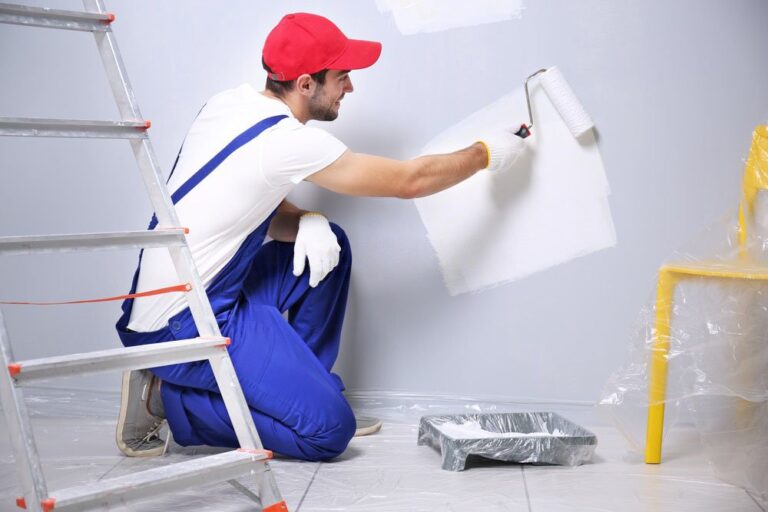Emergency Home Repairs: Quick Fixes for Unexpected Issues

Imagine this scenario: you’re at home, enjoying a peaceful evening, when suddenly disaster strikes – a leaky pipe, a broken window, or a malfunctioning electrical outlet. While these unexpected home repairs can be stressful, having a few DIY tricks up your sleeve can save you time, money, and headaches. In this article, we’ll explore some quick fixes for common household issues that require immediate attention. Let’s dive in!
Life is full of surprises, and unfortunately, some of them involve our homes. When an unexpected repair issue arises, it’s essential to act swiftly and effectively to prevent further damage. In this guide, we’ll provide step-by-step instructions for various emergency home repairs, ensuring you’re prepared for whatever curveball life throws your way.
Dealing with Water Woes
Quick Pipe Patching
A burst or leaky pipe can lead to extensive water damage if not addressed promptly. In a pinch, you can use epoxy putty to temporarily seal the leak. Turn off the water supply, clean and dry the area, then apply the putty following the manufacturer’s instructions. Remember, this is just a temporary fix – consult a professional plumber for a permanent solution.
Temporary Roof Repairs
If your roof is compromised during a storm, you can use a tarp to cover the damaged area temporarily. Secure the tarp tightly and evenly to prevent water from seeping in. This stopgap measure will keep your home dry until a professional roofer can assess and repair the damage.
Fixing a Leaky Faucet
A constantly dripping faucet is annoying and wasteful. To stop the drip temporarily, locate the shut-off valve under the sink and turn it clockwise until the water flow stops. If the leak persists, the faucet’s internal components may need replacement – a task best suited for a plumber.
Addressing Blocked Drains
Few things are more frustrating than a clogged drain disrupting your daily routine. Whether it’s a slow-draining sink or a backed-up shower, problem with blocked drains can quickly escalate into a messy situation.
Boiling Water Method
One of the simplest solutions to unclog a drain is by pouring boiling water down it. Boiling water can help break down and wash away grease and soap scum that may be causing the blockage. Be cautious when using this method on plastic pipes, as the hot water might damage them.
Baking Soda and Vinegar Combo
This classic household combination can work wonders on minor drain clogs. Start by pouring a pot of hot water down the drain. Then, pour about half a cup of baking soda into the drain, followed by a mixture of one cup of vinegar and one cup of hot water. Cover the drain with a plug or cloth to contain the chemical reaction. After about 15 minutes, flush the drain with boiling water.
Plunger Power
A plunger isn’t just for toilets – it can also be effective in unclogging sinks and tubs. Ensure there’s enough water to cover the plunger, and then plunge vigorously for about 20-30 seconds. This method can dislodge minor blockages and restore proper drainage.
When to Call Professionals
While DIY methods can often clear minor drain clogs, there are instances when it’s best to call a professional plumber. If you’ve tried multiple methods and you still have blocked drains, if you suspect a more severe issue such as a collapsed pipe, or if the problem recurs frequently, it’s time to seek expert help. Professional plumbers have the tools and expertise to diagnose and resolve complex blockages without causing further damage to your plumbing system which makes this smart money spend.
Electrical Emergencies
Tripped Circuit Breaker Troubles
If your power suddenly goes out, it could be due to a tripped circuit breaker. Open your electrical panel and look for the breaker that’s in the “off” position. To reset it, flip it to the “on” position. If this happens frequently, consult an electrician to determine the underlying cause.
Addressing Power Outages
During power outages, unplug sensitive electronics to prevent damage from power surges when electricity is restored. Use battery-powered lights or candles for illumination, and consider having a generator for extended outages.
Outlet Overhaul
Faulty outlets can be hazardous. If an outlet sparks or feels hot, turn off the circuit and replace the outlet cover. If the problem persists, consult an electrician to avoid fire risks.
Securing Your Space
Broken Window Band-Aid
A shattered window poses security risks. Temporarily cover the window with plywood or cardboard and secure it with duct tape. Arrange for a professional to replace the window as soon as possible.
Jammed Door Solutions
A door that won’t close properly compromises your safety. Check for any obstructions in the door frame, and if that doesn’t solve the issue, adjust the strike plate or hinges. This quick fix can buy you time until a professional can address the root cause.
Appliance Mishaps
Refrigerator Rescue
If your refrigerator stops cooling, check the condenser coils for dust buildup and clean them. If the issue persists, the problem might lie with the compressor or thermostat, requiring a technician’s attention.
Washing Machine Woes
Is your washing machine leaking? Check the hoses for cracks or loose connections. Tighten or replace them as needed. If the leak continues, the machine’s internal components may be faulty.
Conclusion
While unexpected home repairs can be stressful, having the knowledge to perform quick fixes can alleviate some of the anxiety. Remember, these solutions are temporary measures. For long-term safety and proper repairs, always consult professionals in the respective fields. By staying prepared, you can handle these emergencies with confidence.
FAQs
- How can I stay safe during DIY repairs?
- Prioritize your safety by wearing appropriate gear and turning off utilities when necessary.
- When should I call a professional?
- If you’re unsure about the issue or lack the required expertise, it’s best to consult a professional.
- Are these fixes permanent?
- No, these are temporary solutions. Permanent fixes should be handled by professionals.
- What tools should I keep on hand for emergencies?
- A basic toolkit with a wrench, pliers, duct tape, flashlight, and a multipurpose tool can be very useful.
- Can I prevent emergency repairs?
- While some emergencies are unavoidable, performing regular home maintenance can help prevent many issues.





